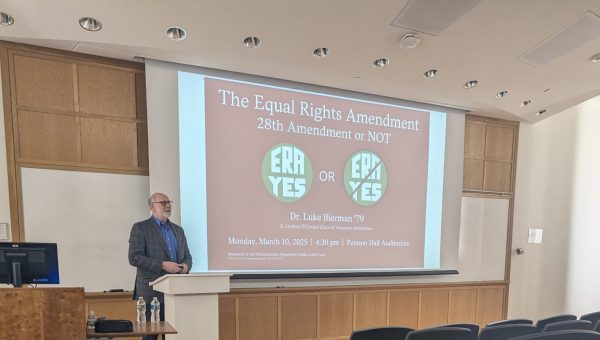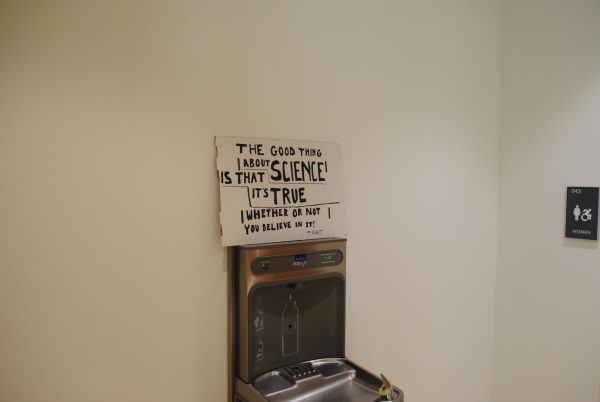SGA Encourages a “Work Safe, Play Safe” Campaign While Senate Tries to Reform the Car Policy
Prior to arrival on campus for the Spring 2021 semester, Colgate required students to sign an updated Commitment to Community Health (Commitment) to ensure the safety of all members of the Colgate community. In an effort to encourage compliance, the Student Government Association (SGA) has launched a “Work Safe, Play Safe” campaign on social media and through various mediums across campus.
Following student concerns about clarity of the guidelines, SGA President and senior Amarachi Iheanyichukwu headed the campaign to inform students and get them excited to follow the Commitment to Community Health.
“The fundamental goal of the ‘Work Safe, Play Safe’ campaign this semester is to provide a lot more clarity on the rules so there isn’t a lack of communication,” SGA Social Media Coordinator sophomore Kate Anderson said.
Using Instagram as their main platform, SGA has been posting often, using humor and simplified text to inform students about updated rules, policies and procedures with regards to each additional Gate of Reopening. Along with these informative posts, the SGA has also been promoting socially-distant and virtual events and activities around campus such as snowshoeing with Outdoor Education and Zoom panels for Black History Month.
Although adjustments have been made to the rules outlined in the Commitment this semester, students have voiced dissatisfaction with some of the updated policies, specifically to personal vehicle use procedures. This is one of students’ major concerns regarding the Commitment to Community Health, according to sophomore senator Andrew Liao.
“The main goal is not to allow students to travel with anyone they please, but instead just to allow direct family units to travel together because they are already exposed to each other,” Liao said.
SGA Senate members and other students involved in the campaign to change the car policy claim a rule limiting one person per car is futile. First-year Tucker Cassady, who was involved in the campaign to change this rule, finds it to be a confusing rule.
“It’s an unnecessary limitation on the student body,” Cassady said. “The somewhat unsanitary conditions of the cruisers and the lack of desire to be in such an environment were strong enough claims to warrant a change.”
Data compiled on the University’s Health Analytics Dashboard shows quarantine and isolation box trending in a positive direction, with no new confirmed cases in the most recent round of testing, according to the Vice President for Communications Laura Jack’s Colgate Together Digest from Feb. 10.
Optimism about the safety of the Colgate community furthers students’ push for reform to the car policy, and, according to Liao, a change in this policy would be sensical and in alignment with how students already live on campus.
“[The policy update] would have nearly zero implications as far as contact-tracing and health concerns– as those who are in a direct family unit are connected already,” Liao said. “There is not one person that we have talked to who has opposed the proposed solution. It is brought up nearly every day. Yet we have talked to administration and haven’t had any reciprocation for this concern.”

Annabel Morris is a senior from Rumson, NJ concentrating in political science and minoring in Middle East & Islamic studies and anthropology. She has...









